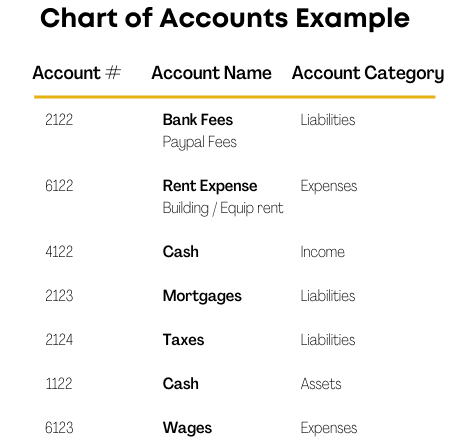There are several reasons to create an effective chart of accounts. In business, the goal is to be able to generate good reports to manage the business. Using consistent categories for your expenses is important so that you can make comparisons between different properties and years. It also keeps your books clean and data readily available.
A chart of accounts includes a common numbering structure for all accounts, and the numbering should follow the same general pattern. Also append three or four-digit indicators to each account to represent parts, divisions, or products. You can create an account chart for any size or type of business. You may also want to use a combination of both. In the end, the chart should be easy to use and a valuable tool for management decisions.
Organize the chart of account in an order of magnitude based on your business. For example, the sales department would be 60, while the administrative department would be 50. For the most accurate representation of your financial performance, your restructured chart of accounts should include special accounts as well. Using a parent-child account setup is a perfect example of how an effective chart of accounts structure might look.
As a company grows and expands, you’ll need to create new categories to accommodate these new accounts. A good starting point is with the liability category. This category is where your debt obligations are documented. In a traditional balance sheet, you would use this category to document debts. Start by adding new liabilities in this category, which will have a current liabilities section and a long-term liabilities section.

Why is it important for small business owners?
When setting up your chart of accounts, consider your future needs as well. While you may not have employees now, plan for their future. For example, include payroll accounts. You may need to add additional accounts as you grow. Your chart of accounts should not change too much from year to year, because you’ll want to be able to compare the performance of each account over time.
A Valuable Tool
A well-designed chart of accounts is a valuable tool for financial record keeping. It makes it easier to identify business expenses and creates a clear picture of the company’s performance. When you create an effective chart of accounts, you’ll save yourself countless hours of rework. You’ll also be able to share this information with other members of your staff, your accountant, and financial institution if needed.
Get started today and make your accounting system look more professional. It will save you time and frustration down the road. We can help.







